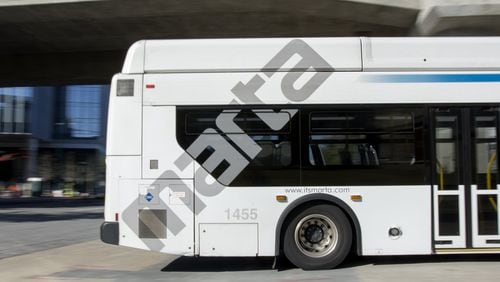MARTA was a big winner in Tuesday's election, as voters in the city of Atlanta gave the OK to expanding services, an indication that perceptions of the metro transit system could be changing.
Atlanta voters overwhelmingly approved taxing themselves an extra half-penny to raise $2.5 billion for the expansion of MARTA, once derided for its shoddy service, poor management and limited subway reach.
The referendum’s success may embolden Fulton County to try its own measures to bolster MARTA service outside the Atlanta city limits. Fulton leaders have suggested they may seek a quarter of a penny sales tax hike for that purpose.
“What the voters are telling us is that they really appreciate the progress we have made,” MARTA CEO Keith Parker said. After years of running deficits, he said, MARTA has recorded a surplus for the past three years, increased security at stations and added new extras such as a Friday produce market at Five Points Station downtown.
Atlanta voters on Tuesday also approved by a large margin a four-tenths penny sales tax increase for city transportation projects, such as synchronizing traffic signals, road construction and bike paths.
Separately, Fulton County voters narrowly passed a three quarters of a penny sales tax hike in unincorporated Fulton and all its cities except Atlanta. The money will be used for roads, bridges, sidewalks and other improvements.
At the next meeting of Fulton County mayors, in December, Fulton County Chairman John Eaves said he will broach the subject of expanding MARTA in the rest of the county. A vote could happen as soon as next fall. When this transportation tax was proposed, some city leaders said they opposed expanded funding for MARTA before road improvements were made.
“We are somewhat emboldened by yesterday’s T-SPLOST vote,” Eaves said, using the acronym for Fulton’s transportation tax. Regarding MARTA, he said, “My personal feeling is that we should do it. We should strike the fire while it’s hot. …There is regional heightened interest in MARTA.”
The process won’t be easy, Roswell Mayor Jere Wood said.
Wood supports plans to expand transit, but said it is unclear whether heavy rail, light rail, bus-rapid transit or another form of public transportation is the best option for the county. Those details would need to be worked out.
Additionally, Wood said, the county would have to pass the expansion without the help of Atlanta, since voters there have already approved a measure.
“I’m expecting it to take work,” Wood said. “We may not be ready for it this year.”
The sales tax bumps, including MARTA’s, were not without their critics.
Baruch Feigenbaum, a transportation policy analyst for conservative think tank Reason Foundation, earlier this year called such taxes regressive because of their impact on low-income wage earners.
And Paul Mitchell, 26, voting Tuesday at Dobbs Elementary School, said he rejected the MARTA tax increase because he thinks the transit system is still poorly run.
“They seem like they’re struggling with what they have now, so I don’t think they should be trying to push further than what they’re capable of,” he said.
But Justin Giboney, who campaigned for the MARTA referendum, said the investment is long overdue.
“My campaign team was driven by the fact that an underfunded transit system hurts Atlanta’s poorest residents the most,” he said. “We were working for those who don’t have a choice but to use MARTA and deserve better service.
— Staff writer Becca J. G. Godwin contributed to this story.








